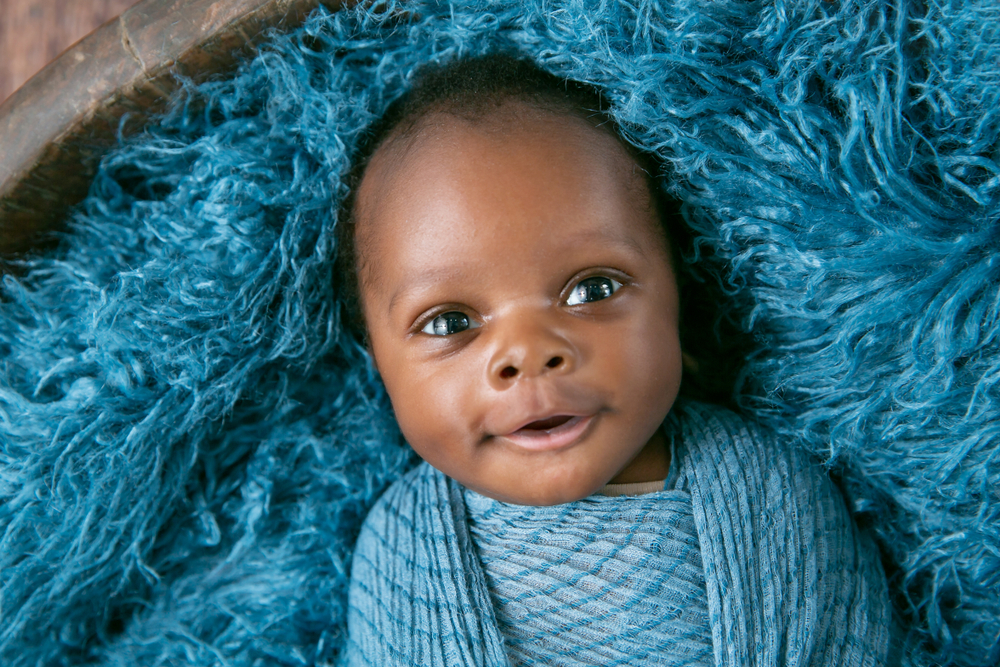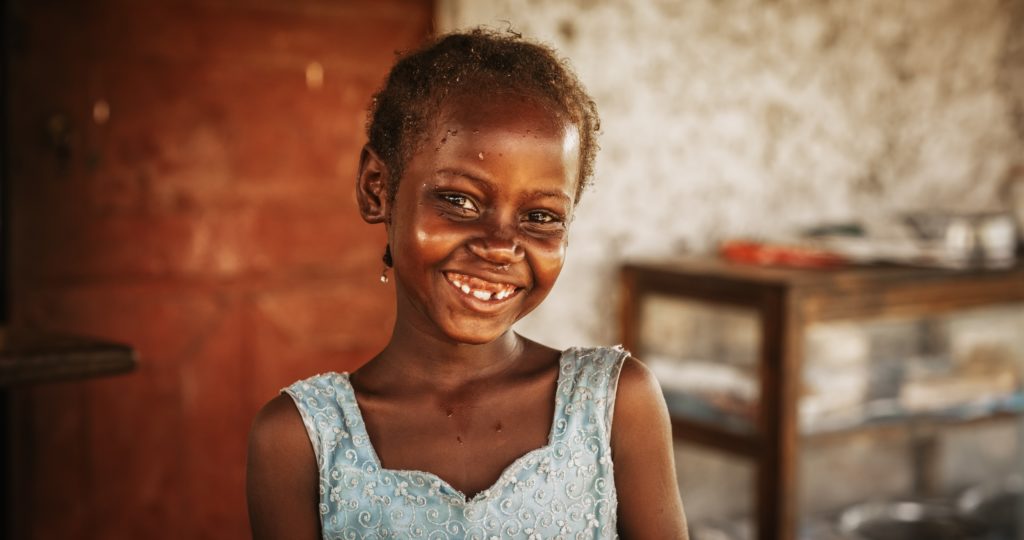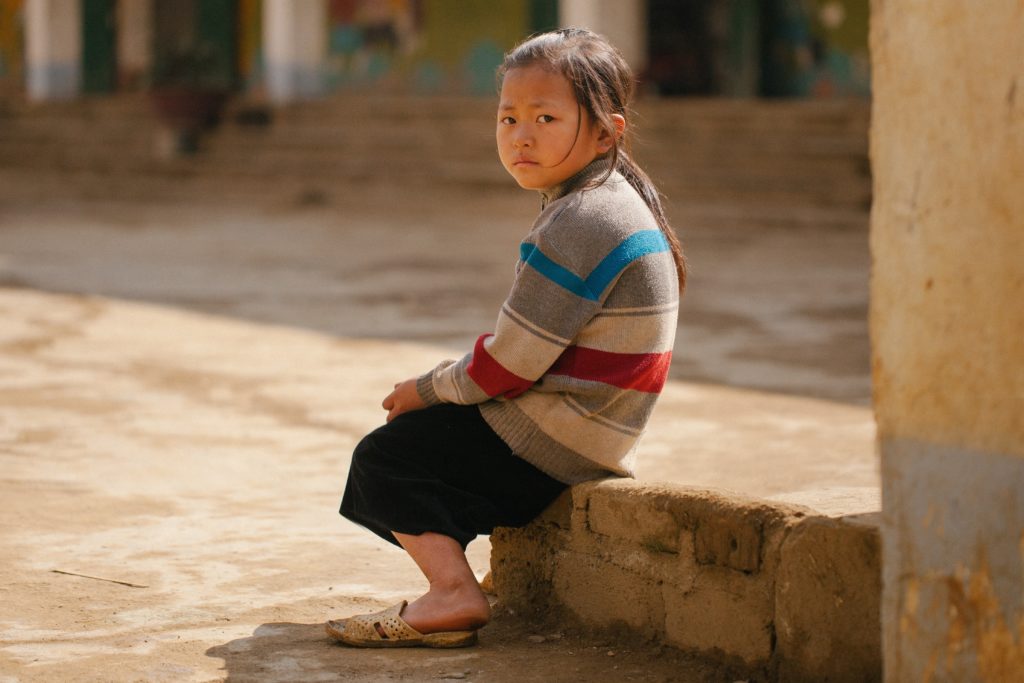The right to life is considered the most fundamental human right, encompassing the protection and preservation of life for all. Nevertheless, in 2022, approximately 4.9 million children lost their lives before their fifth birthday. The lives of children worldwide are threatened by preventable circumstances including, but not limited to, diseases, poverty, malnutrition, death penalties and environmental degradation. Vulnerable groups like children in armed conflict, children in street situations, indigenous and migrant children are particularly at risk.

The right to life as the foundation of human rights
The Human Rights Committee describes the right to life as the “supreme right” (Human Rights Committee 2019, para. 2). It is most precious for its own sake as a right that inheres in every human being, but it also constitutes a fundamental right, the effective protection of which is the prerequisite for the enjoyment of all other human rights (Human Rights Committee 2019, para. 2).
The right to life entitles individuals:
- To be free from acts that are intended to or could reasonably be expected to cause their unnatural or premature death,
- To be free from omissions that are intended to or could reasonably be expected to cause their unnatural or premature death and,
- To enjoy a life with dignity (Human Rights Committee, 2019, para. 3).
For children, the right to life further includes the right to survival and development (Art. 6(2) CRC; Art. 5(2) ACRWC).
Legal basis
The right to life is protected by many national as well as international laws and treaties. At an international level, the most relevant provisions guaranteeing the right to life to children are Article 3 of the Universal Declaration of Human Rights (UDHR), Article 6(1) of the International Covenant on Civil and Political Rights (ICCPR), Article 24(1) of the European Convention on Human Rights (ECHR), Article 4 of the African Charter on Human and Peoples’ Rights (ACHPR), Article 5 (1)(2) of the African Charter on the Rights and Welfare of the Child (ACRWC), Article 4(1) of the American Convention on Human Rights (ACHR) and Article 6(1) of the Convention on the Rights of the Child (CRC).
Moreover, the right to life is considered customary international law, which means that it binds every State irrespective of whether the given State is a party to a treaty that codifies the norm or not (Casey-Maslen, 2021, paras. 1.17-1.20).
The scope of the children’s right to life
Personal scope
The right to life applies to all individuals, without distinction of any kind, even for those convicted of the most serious crimes (Human Rights Committee 2019, para. 3). It is guaranteed from the moment of birth under the UDHR, the ICCPR, the ECHR, the ACHPR, and the CRC (Copelon/Zampas/Brusie/deVore, 2005).
However, these treaties do not prevent states from protecting the lives of unborn children under their national law. Only the ACHR protects life, in general, from the moment of conception (cf. the second sentence of Art. 4(1) ACHR). The term “in general” was used in order to permit each State party to define for itself when the right to life begins, thereby leaving the question of whether an abortion violates the right to life of an unborn child or not to each State parties’ individual determination (Inter-American Commission on Human Rights, 1981).
Material scope
The right to life as the right not to be deprived of life
States are not only obliged to refrain from engaging in conduct resulting in the deprivation of life, but also to protect individuals from being deprived of life by other individuals or entities whose conduct is not attributable to the State (Human Rights Committee, 2019, para. 7). However, the right to life is not an absolute right. Non-arbitrary acts (potentially) leading to death are not excluded by the right to life (Human Rights Committee, 2019, para. 5).
The ECHR explicitly excludes the deprivation of life as a result of the use of force which is absolutely necessary in defence of any person from unlawful violence, in order to effect a lawful arrest or to prevent the escape of a person lawfully detained or in action lawfully taken for the purpose of quelling a riot or insurrection (Art. 2(2)).
The right to life as the duty of States to protect life and to secure a life with dignity
The States’ duty to protect life implies the imposition of appropriate measures to ensure that the general conditions in society do not threaten life and that individuals are not prevented from enjoying a life with dignity.
Such conditions include high levels of crime and armed violence, high levels of traffic and industrial accidents, environmental degradation, deprivation of indigenous people’s land, territories and resources, the prevalence of life-threatening diseases such as AIDS, tuberculosis or malaria, extensive drug abuse, hunger, malnutrition, extreme poverty or homelessness (Human Rights Committee, 2019, para. 26). Additionally, States are obliged to take adequate measures to prevent suicides, especially among individuals in vulnerable situations (Human Rights Committee, 2019, para. 9).
The right to life, survival and development of the child
The children’s right to life requires States to take additional measures specifically aimed at protecting the lives of children and enabling them to live their lives in dignity (Human Rights Committee, 2019, para. 60). Also, it is interrelated and interdependent to their right to survival and development (Nowak, 2005, para.18).
The right to survival and development must be interpreted in a holistic manner, meaning that its implementation requires the enforcement of every single right of the child, including rights to health, adequate nutrition, social security, an adequate standard of living, a healthy and safe environment, education and play (cf. Arts. 24, 27, 28, 29 and 31 CRC), as well as through respect for the responsibilities of parents and the provision of assistance and quality services (cf. Arts. 5 and 18 CRC) (Committee on the Rights of the Child, 2006, para. 10). Furthermore, the right to life, survival and development is one of the four guiding principles of the CRC (Committee on the Rights of the Child, 2003, General Comment No. 5, para. 12).
Current challenges and debates related to children’s right to life
Child mortality
The global under-5 mortality rate has declined by 51 per cent since 2000. Nevertheless, in 2022, approximately 4.9 million children died before they turned five years old. In addition, 2.1 million children, adolescents and youth aged 5-24 lost their lives.
Between 2000 and 2022, the world lost 221 million children, adolescents and youth before they turned 25. Children face unequal chances of survival based on where they live, their socio-economic status, and if they live in fragile or conflict-affected settings (UNICEF, 2024, Levels and trends in child mortality).
The lives of children are particularly at risk due to diseases, poverty and malnutrition. Children under five years of age are especially vulnerable to infectious and life-threatening diseases. Despite being preventable and treatable, pneumonia, diarrhoea and malaria were responsible for approximately 30 % of global deaths among children under 5 in 2019 (UNICEF, Childhood diseases).

Thereby, children in the world’s poorest regions are particularly vulnerable (UNICEF, Childhood diseases). Furthermore, children are more than twice as likely as adults to live in extreme poverty (World Bank Group/UNICEF, 2023). In 2022, about 333 million children were affected (World Bank Group/UNICEF, 2023). Moreover, 181 million children worldwide are living in severe child food poverty, meaning that they are not able to access and consume a nutritious and diverse diet in their first five years of life (UNICEF, 2024, Child Food Poverty).
Reducing child mortality means improving health as well as fighting poverty and malnutrition. The WHO promotes universal health coverage, the global availability of vaccines, infant and young child feeding as well as an integrated approach to managing childhood illness that considers all aspects of a child’s health, and a continuum of care throughout the early years (WHO).
The decrease of the child mortality rate in the past decades shows that Sustainable Development Goal No. 3 (End of preventable deaths of under 5-year-old children by 2030) is attainable. However, there is still a long way to go.
Death penalties
The imposition of death sentences is explicitly prohibited for crimes committed by persons below eighteen years of age (Art. 6(5) ICCPR, Art. 4(5) ACHR, Arts. 2, 5 (1) ACRWC, Art. 37 (a) CRC). The U.S. Supreme Court held in 2005 in Roper v Simmons that imposing capital punishment for crimes committed under the age of eighteen is not compatible with the U.S. Constitution (U.S. Supreme Court, 2005).
Nevertheless, there are still countries that sentence juvenile offenders to death. Between 1990 and 2022, Amnesty International has documented 163 of such executions in ten different States (Iran, USA, Pakistan, Saudi Arabia, Yemen, Nigeria, the Democratic Republic of Congo, China, Sudan and South Sudan).
Most of these executions (113) were practised in Iran (Amnesty International, 2023). In Iran, death sentences for juvenile offenders do not seem to come to an end. Iranian as well as international activists and organisations have been trying to stop executions of juvenile offenders (Amnesty International, 2024).
The UN High Commissioner for Human Rights calls the application of the death penalty to under-18-year-old offenders “illegal and unacceptable” and urges Iranian authorities to end this practice (UN, 2018). However, these attempts have barely been crowned with success yet.
Vulnerable groups of children
There are certain groups of children whose lives are explicitly at risk and therefore demand for special protection. These groups include, but are not limited to, children in armed conflicts, children in street situations, indigenous children and migrant children.
Children in armed conflicts
The right to life applies without any exceptions to children in armed conflicts (Human Rights Committee, 2019, para. 60). Nonetheless, in 2023, at least 11,649 children became victims of killing and maiming in armed conflict, which is an increase of 35 % compared to 2022. Additionally, 8,655 children were recruited and used and 1,650 schools and hospitals were attacked.
In total, the number of these incidents has increased by 21 % compared to 2022. This increase is attributed to several factors, some of which include the changing nature, complexity, expansion and intensification of armed conflict; the use of explosive weapons in populated areas and the advent of new armed groups (UN General Assembly, 2024).
Children in street situations
Children in street situations are children for whom the street is a habitual abode/ and or source of livelihood, and who are inadequately protected, supervised or directed by responsible adults (UN General Assembly, 2012, para. 8). Children in street situations face risks such as extrajudicial killings by State agents; murder, child labour, substance abuse, sexual exploitation and malnutrition, health care and shelter (Committee on the Rights of the Child, 2017, para. 29).
The right to life, survival and development requires States to protect children in street situations and to ensure a life with dignity. According to the Committee on the Rights of the Child, States have an obligation to refrain from State-led violence and to decriminalize survival behaviours and status offences (Committee on the Rights of the Child, 2017, para. 32).
Indigenous children

Indigenous people are distinct social and cultural groups that share collective ancestral ties to the lands and natural resources where they live, occupy, or from which they have been displaced. They make up approximately 6 % of the global population (World Bank Group, 2023). Disproportionately high numbers of indigenous children live in extreme poverty; infant and child mortality rates, as well as malnutrition and diseases among indigenous children, are particularly high (Committee on the Rights of the Child, 2009, para. 34).
According to the preamble of the CRC, State parties take due account of the importance and cultural values of each person for the protection and harmonious development of the child. Bearing this in mind, for indigenous children whose communities retain a traditional lifestyle, the use of traditional land is of significant importance to their development. States must therefore closely consider the cultural significance of traditional land and the quality of the natural environment (Committee on the Rights of the Child, 2009, para. 35).
Migrant children
International migration affects all regions of the world and all societies and, increasingly, millions of children (Committee on the Protection of the Rights of All Migrant Workers and Members of Their Families/Committee on the Rights of the Child, 2017, para. 8). In 2020, the number of migrant children – defined as children living in a country outside their country of birth – reached 36 million; among these are nearly 17 million refugees and asylum seekers who have been forcibly displaced from their own countries (UNICEF, 2021).
States are obliged to prevent and reduce migration-related risks faced by children, which may jeopardize a child’s right to life, survival and development, such as violence in camps, push-back or interception operations, excessive use of force of border authorities or refusal of vessels to rescue them (Committee on the Protection of the Rights of All Migrant Workers and Members of Their Families/Committee on the Rights of the Child, 2017, paras. 40, 42).
The children’s right to life in the context of environmental degradation
The triple planetary crisis- comprising the climate emergency, the collapse of biodiversity and pervasive pollution-, is an urgent and systemic threat to children’s rights globally (Committee on the Rights of the Child, 2023, para. 1). As of 2022, 739 million children were exposed to high or extremely high water scarcity and 436 million children were facing high or extremely high drought risk (UNICEF, 2023).
The right to life, survival and development obliges States to protect children from foreseeable premature or unnatural death and threats to their lives that may be caused by acts and omissions in the context of environmental degradation, including climate change, pollution and biodiversity loss (Committee on the Rights of the Child, 2023, para. 20).
If a State party to the European Convention on Human Rights (ECHR) violates the right to life by not implementing sufficient measures to combat climate change, it is possible to claim this violation before the European Court of Human Rights (ECtHR).
In its ruling Verein KlimaSeniorinnen Schweiz and Others v. Switzerland from April 2024, the European Court of Human Rights (ECtHR) found that the ECHR encompasses a right to effective protection by the State authorities from the serious adverse effects of climate change on lives, health, well-being and quality of life. Also, the Court ruled that associations may claim a violation of this right (ECtHR, 2024). This judgment is a door-opener for individuals as well as associations within the jurisdiction of the ECtHR to invoke their environmental rights before a court, including the right to life.
Way forward to protect children’s right to life
Progress has been made in implementing children’s right to life by taking measures to reduce preventable deaths over the past two decades. Nevertheless, the lives of many children are still at risk due to, inter alia, inadequate healthcare, poverty, malnutrition and death penalties. Environmental degradation threatens the lives of children worldwide.

There is still much work to be done to eliminate all preventable child deaths and to ensure that every single child in the world is able to live a life with dignity. States need to stop executions of juvenile offenders, promote the health of children, combat poverty as well as malnutrition and implement measures to protect the life, survival and development of children.
These include, inter alia, measures to counteract environmental degradation. Moreover, vulnerable groups, including, but not limited to, children in armed conflicts, children in street situations, indigenous children, and migrant children, require special protection. International organizations as well as individuals must campaign for the protection of the inalienable right to life. Violations of the right to life need to be claimed, in public as well as in court.
Written by Giulia Welge
Internally proofread by Aditi Partha
Last updated on 20 October 2024
References:
Amnesty International (2023). Executions of persons who were children at the time of the offence 1990 – 2022. ACT 50/6630/2023. Retrieved from Amnesty International at https://www.amnesty.org/en/documents/act50/6630/2023/en/, accessed on 20 October 2024.
Amnesty International (2024). Young man arrested as a child scheduled to be executed within days. Accessed on 19 October 2024. Retrieved from Amnesty International at https://www.amnesty.org/en/latest/news/2024/10/iran-young-man-arrested-as-a-child-scheduled-to-be-executed-within-days/, accessed on 20 October 2024.
Casey-Maslen, S. (2021). The Right to Life under International Law: An Interpretative Manual. Cambridge University Press.
Committee on the Rights of the Child (2003). General Comment No. 5 (2003): General measures of implementation of the Convention on the Rights of the Child (arts. 4, 42 and 44, para. 6). UN Doc CRC/GC/2003/5.
Committee on the Rights of the Child (2006). General Comment No. 7 (2005): Implementing child rights in early childhood. UN Doc CRC/C/GC/7/Rev.1.
Committee on the Rights of the Child (2009). General Comment No. 11 (2009): Indigenous children and their rights under the Convention. UN Doc CRC/C/GC/11.
Committee on the Rights of the Child (2017). General comment No. 21 (2017) on children in street situations. UN Doc CRC/C/GC/21.
Committee on the Rights of the Child (2023). General comment No. 26 (2023) on children’s rights and the environment, with a special focus on climate change. UN Doc CRC/C/GC/26.
Committee on the Protection of the Rights of All Migrant Workers and Members of Their Families/Committee on the Rights of the Child (2017). Joint general comment No. 3 (2017) of the Committee on the Protection of the Rights of All Migrant Workers and Members of Their Families and No. 22 (2017) of the Committee on the Rights of the Child on the general principles regarding the human rights of children in the context of international migration. UN Doc CMW/C/GC/3 – CRC/C/GC/22.
Copelon, R./Zampas, C./Brusie, E./deVore, J. (2005). Human Rights Begin at Birth: International Law and the Claim of Fetal Rights, in: Reproductive Health Matters, 13(26), p.120–129.
ECtHR (2024). Grand Chamber of the European Court of Human Rights. Verein KlimaSeniorinnen Schweiz and others v. Switzerland. Judgment of 9.4.2024, Application no. 53600/20.
Human Rights Committee (2019). General Comment No. 36 – Article 6: right to life. UN Doc CCPR/C/GC/36.
Inter-American Commission on Human Rights (1981). Annual Report of the Inter-American Commission on Human Rights 1980-1981: Resolution 23/81 – Case 2141 (United States) – March 6, 1981. OEA/Ser.L/V/II.54 DOC 9 rev. 1.
Nowak, M. (2005). Article 6: The Right to Life, Survival and Development – A Commentary on the United Nations Convention on the Rights of the Child.
UN General Assembly (2012). Report of the United Nations High Commissioner for Human Rights on the protection and promotion of the rights of children working and/or living on the street. UN Doc A/HRC/19/35.
UN General Assembly (2024). Report of the Special Representative of the Secretary-General for Children and Armed Conflict. UN Doc A/79/245.
United Nations (2018). News. UN rights chief urges Iran to halt executions of juveniles on death row. Retrieved from United Nations at https://news.un.org/en/story/2018/02/1002891, accessed on 19 October 2024.
UNICEF. Childhood diseases. Retrieved from UNICEF at https://www.unicef.org/health/childhood-diseases, accessed on 21 September 2024.
UNICEF (2021). Migration. Retrieved from UNICEF at https://data.unicef.org/topic/child-migration-and-displacement/migration/, accessed on 21 September 2024.
UNICEF (2023). The climate-changed child: A children’s climate risk index supplement. Retrieved from UNICEF at https://data.unicef.org/topic/child-migration-and-displacement/migration/, accessed on 20 October 2024.
UNICEF (2024). Child Food Poverty: Nutrition deprivation in early childhood. Retrieved from UNICEF at https://data.unicef.org/resources/child-food-poverty-report-2024/, accessed on 21 September 2024.
UNICEF (2024). Levels and trends in child mortality. United Nations Inter-Agency Group for Child Mortality Estimation (UN IGME) – Report 2023. Retrieved from UNICEF at https://data.unicef.org/resources/child-food-poverty-report-2024/, accessed on 20 October 2020.
U.S. Supreme Court (2005). Roper v. Simmons, 543 U.S. 551.
WHO. Child Health. WHO Response. Retrieved from WHO at https://www.who.int/health-topics/child-health#tab=tab_3, accessed on 19 October 2024.
World Bank Group (2023). Indigenous Peoples. Retrieved from World Bank Group at https://www.worldbank.org/en/topic/indigenouspeoples#:~:text=Indigenous%20Peoples%20are%20distinct%20social,which%20they%20have%20been%20displaced, accessed on 21 September 2024.
World Bank Group/UNICEF (2023). Policy Research Working Paper 10525: Global Trends in child Monetary Poverty According to International Poverty Lines. Retrieved from UNICEF at https://www.unicef.org/media/146771/file/Global%20Trends%20in%20Child%20Monetary%20Poverty:%20According%20to%20International%20Poverty%20Lines.pdf, accessed on 21 September 2024.

